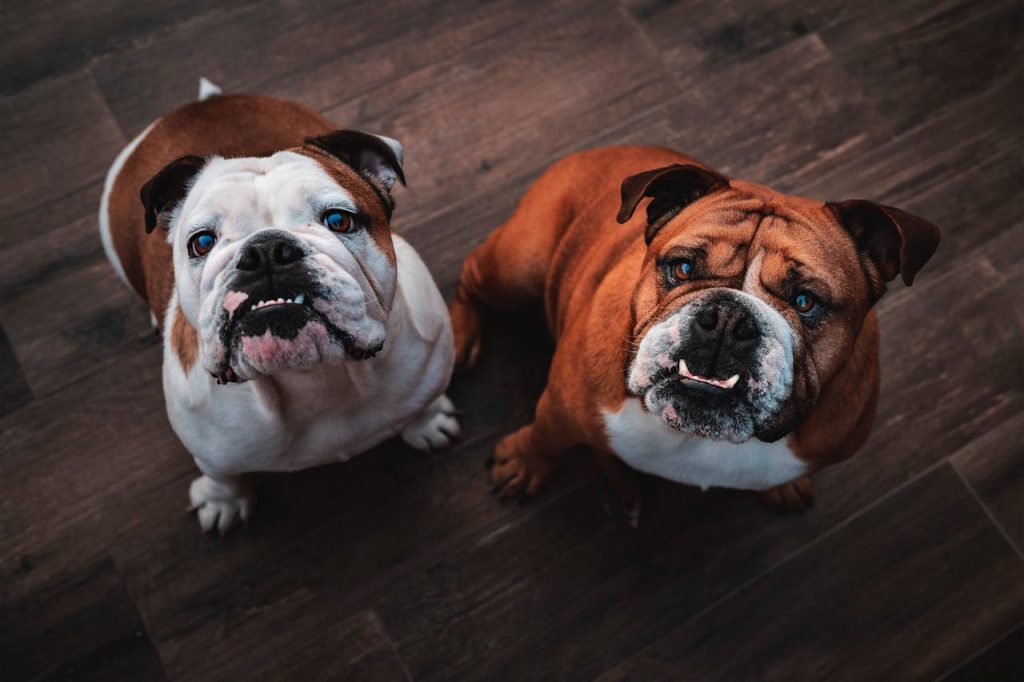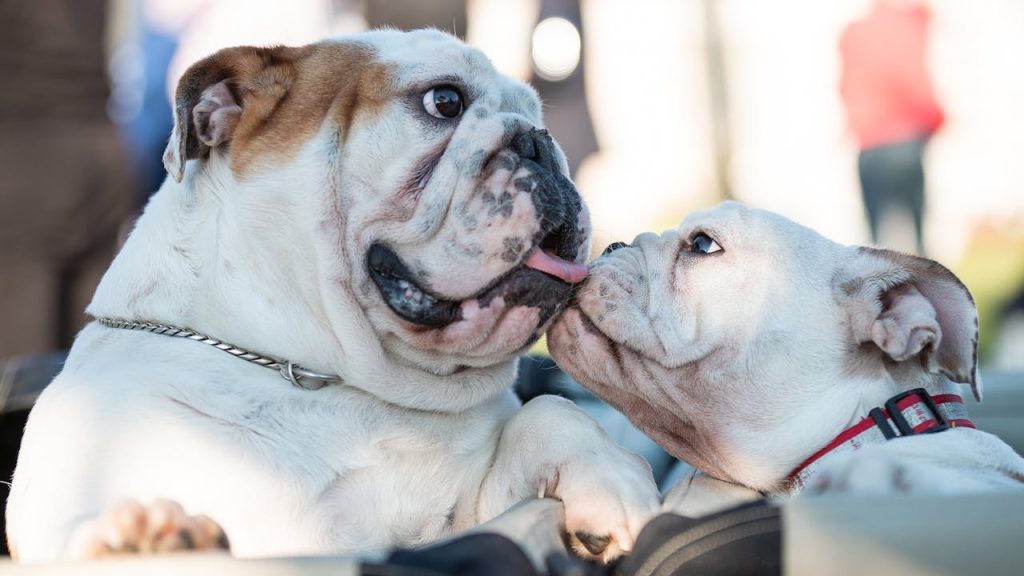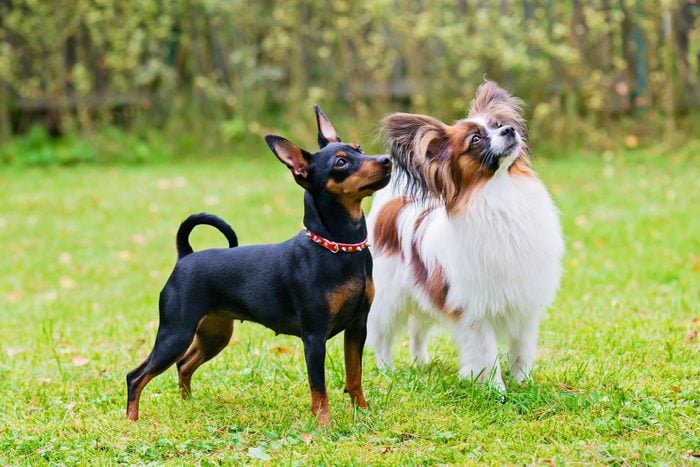Bulldogs are one of the most iconic and beloved dog breeds, known for their distinctive appearance and loyal nature. With their wrinkled faces, stocky build, and endearing personalities, Bulldogs have earned a special place in the hearts of dog enthusiasts worldwide.
This guide delves deep into the history, characteristics, and care needs of Bulldogs to help you understand what makes this breed so special.

Table of Contents
Introduction to Bulldogs
Bulldogs are a medium-sized breed known for their muscular build, loose skin, and characteristic pushed-in nose.
Despite their somewhat intimidating appearance, Bulldogs are gentle, affectionate, and great with families. Their calm demeanor and unwavering loyalty make them ideal companions for various lifestyles.
History and Origin of Bulldogs
The Bulldog’s history traces back to 13th-century England, where they were bred for bull-baiting, a popular yet cruel sport of the time. The breed’s strength and tenacity made them well-suited for the task. However, when bull-baiting was outlawed in 1835, Bulldogs faced a turning point.
Dedicated breeders worked to transform the breed into a loving and docile companion, retaining their physical traits while enhancing their gentle temperament.
Today, Bulldogs are celebrated as symbols of courage and resilience, often associated with British culture and sporting mascots worldwide.

Why Bulldogs Were Created
Originally bred for bull-baiting, Bulldogs were designed for strength, agility, and determination. Over time, as their roles shifted from working dogs to companions, breeders focused on developing their loving and loyal nature.
Bulldogs now excel as family pets, therapy dogs, and even as participants in dog shows.
Physical Characteristics of Bulldogs
Bulldogs are easily recognizable with their compact, muscular bodies, and distinctive facial features. Key physical traits include:
- Size: Medium-sized, typically weighing between 40-50 pounds.
- Head: Large and square with a short muzzle and prominent wrinkles.
- Body: Stocky and low to the ground, with broad shoulders and a barrel chest.
- Coat: Smooth, short, and fine, in various colors such as white, fawn, brindle, and piebald.

Temperament and Personality of Bulldogs
Bulldogs are known for their calm, friendly, and patient demeanor. They form strong bonds with their families and are excellent with children, making them a popular choice for households.
Despite their laid-back nature, Bulldogs are protective of their loved ones and can serve as vigilant watchdogs.
While Bulldogs enjoy lounging around, they also appreciate playtime and companionship. Their stubborn streak can sometimes be a challenge, but their loyalty and affection more than make up for it.
Bite Force and Jaw Strength
Bulldogs have a strong bite force, which was a necessity in their early bull-baiting days. While their physical strength is impressive, modern Bulldogs are gentle and well-mannered.
Responsible ownership and proper training ensure they interact safely with people and other animals.
Choosing the Right Bulldog Puppy
When selecting a Bulldog puppy, it’s crucial to work with reputable breeders who prioritize health and temperament. Bulldogs are prone to specific health issues, so ask about genetic testing and the health history of the puppy’s parents.
Look for a puppy with bright eyes, a healthy coat, and a playful yet calm demeanor. For tips on choosing the perfect puppy, refer to our “Guide to Choosing Your Dream Puppy”.

Intelligence and Training of Bulldogs
Bulldogs are intelligent but can be stubborn, requiring patience and consistency during training. Positive reinforcement techniques work best, as they respond well to treats and praise.
Socialization from an early age helps Bulldogs become confident and well-behaved adults.
Exercise and Energy Levels
Bulldogs have moderate energy levels and require regular but not excessive exercise. Daily walks and short play sessions are sufficient to keep them healthy and happy.
Due to their brachycephalic (short-nosed) structure, Bulldogs are prone to overheating, so exercise should be limited during hot weather.
Diet and Nutrition
A balanced diet is essential for a Bulldog’s health. High-quality dog food, either commercial or home-prepared under veterinary guidance, is recommended. Bulldogs are prone to obesity, so monitor their portion sizes and avoid overfeeding. Freshwater should always be available.

Health and Lifespan
Bulldogs have a lifespan of 8-10 years and are prone to certain health issues due to their unique anatomy. Common concerns include:
- Brachycephalic syndrome (breathing difficulties)
- Hip dysplasia
- Skin infections (due to their wrinkles)
- Obesity
Regular veterinary check-ups, a healthy diet, and proper care can help manage these risks and ensure a better quality of life.
Grooming and Coat Care
Bulldogs have low grooming needs but require regular care to keep them comfortable. Weekly brushing helps reduce shedding, and regular cleaning of their facial wrinkles prevents infections. Nail trimming, ear cleaning, and dental care are also essential components of their grooming routine.
Working Roles and Versatility
While Bulldogs are primarily companions today, their strength and determination make them excellent therapy dogs. Their calm demeanor and affectionate nature allow them to provide comfort and support in various settings.
Bulldogs are also popular mascots for sports teams and organizations, symbolizing courage and resilience.

Fun Facts About Bulldogs
- Bulldogs are the official mascot of the United States Marine Corps.
- They are ranked as one of the most popular dog breeds in the United States.
- Famous Bulldogs include “Tillman,” a skateboarding Bulldog who set a Guinness World Record.
Challenges of Owning a Bulldog
Owning a Bulldog comes with unique challenges, including:
- High veterinary costs due to breed-specific health issues.
- Their stubbornness can make training more time-intensive.
- They require a temperature-controlled environment to prevent overheating.
Despite these challenges, their affectionate nature and loyalty make Bulldogs incredibly rewarding pets.
Tips for Potential Owners
- Ensure you have the time and resources to meet their care needs.
- Be prepared for regular vet visits and potential health concerns.
- Invest in training and socialization to bring out the best in your Bulldog.
- Create a comfortable living environment with moderate temperatures.

Bulldog Puppies: What to Expect
Bulldog puppies are adorable and playful, requiring plenty of attention and care. Socialization and basic obedience training should start early to help them grow into well-mannered adults. Puppy-proof your home to ensure their safety, as they can be curious and mischievous.
Breeding and Reproduction
Breeding Bulldogs is challenging and requires extensive knowledge and resources. Due to their physical structure, Bulldogs often require artificial insemination and cesarean sections. Responsible breeding focuses on improving health and reducing genetic issues.
Raising a litter involves careful monitoring and early socialization to ensure healthy, well-adjusted puppies.

Final Thoughts on Bulldogs
Bulldogs are loyal, loving, and uniquely charming, making them excellent companions for the right owners. Their rich history and endearing personalities make them stand out among dog breeds.
If you’re considering a Bulldog, be prepared for their specific care needs and challenges, and you’ll be rewarded with a devoted and affectionate friend.
Discover more about other amazing dog breeds by exploring our comprehensive guides. Whether you’re interested in the friendly and loyal Labrador Retriever, the charming and playful French Bulldog, the affectionate and intelligent Golden Retriever, the courageous and versatile German Shepherd, or the elegant and clever Poodle, our in-depth resources cover everything you need to know about their unique traits and care tips.
FAQs
Are Bulldogs good with children?
Yes, Bulldogs are excellent with children. They are gentle, patient, and protective, making them great family pets.
Do Bulldogs Require a Lot of Exercise?
Bulldogs have moderate energy levels. They enjoy daily walks and short play sessions but don’t need intense exercise. Be cautious in hot weather to prevent overheating.
What Health Issues Are Common in Bulldogs?
Bulldogs are prone to breathing difficulties, hip dysplasia, and skin infections. Regular vet check-ups and proper care can help manage these concerns.
How Often Should I Groom My Bulldog?
Bulldogs require weekly brushing and regular cleaning of their facial wrinkles to prevent infections. Nail trimming, ear cleaning, and dental care are also important.
Are Bulldogs Easy to Train?
Bulldogs are intelligent but can be stubborn. Positive reinforcement and consistent training methods work best to bring out their best behavior.





1 Comment
Pingback: Beagles The Adorable Companions You’ll Love - Pet Bonded